Off Camber - Motorcycles And Luck

Proper riding technique and protective gear are even more important than luck
Longtime MO readers know that we’re big proponents of developing riding skills throughout your entire riding career. We also stress the importance of protective riding gear for the possibility of things going bad. Unfortunately, I see too many untrained riders careening around the streets with little more than a single layer of cotton – and the helmet they are forced to wear by law – between them and the sharp teeth of the tarmac. What are they counting on to keep them safe out on the road? Their God-given right, as an American male, to instinctively know how to pilot a motor vehicle in any circumstance?
I remember a conversation I had with a life-long motorcyclist biker when he dropped his teenage son off at the CMSP (California Motorcycle Safety Program) class he was required to take in order to get his motorcycle endorsement. Since I was the instructor and the father was bothered by the fact that he had to pay money to teach his son how to ride – a task he could clearly do himself based on his many years of riding – he confronted me over what skills his son would be taught over the weekend. When I mentioned countersteering, he called BS, saying he’d never used it in all his years of riding. So, I gave him an exercise to do on his trip home. To his credit he did, and he was open-minded enough to accept the results.
When he returned a couple of hours later to pick up his son from the classroom session, I had won him over. It turned out that he’d been intuitively countersteering as he leaned his body, but he realized from the short exercise that doing it with purposeful hand inputs was much more efficient. He, however, was the exception. Others also gave me attitude as they dropped off their significant others (so that after passing the class they wouldn’t have to take the DMV riding test to get their motorcycle endorsement) or children. Only, these folks were unwilling to even engage in a discussion or try the techniques being taught.
How did these “riders” last so long on motorcycles? Was it simply luck? Had they been able to bluff their way through life-threatening situations unscathed? Accident studies have shown that untrained riders are overrepresented in crash statistics. So, what gives?
I wish I had an answer to that, but I don’t.
Or what about those highly trained, supremely skilled motorcyclists who get felled every day out on the streets. Yes, since they’re human, some make mistakes that have consequences or were clearly riding in a manner that was inappropriate for the situation. However, as one of my neighbors was reminding me just this morning, you can be the best rider in the world and still not be able to avoid the shenanigans of one of the idiots sharing the road with you. I don’t know if it’s cell phones or the fact that pot…excuse me…cannabis is now legal in California or a combination of the two, but inattentive drivers appear to be on an upswing in my SoCal stomping grounds, requiring me to be extra vigilant as I make my way through the LA Basin.
Is it simply bad luck that puts us on a collision course with another vehicle? I’m a huge proponent of looking towards myself after a close call to see the role that I played in the almost-altercation. Yes, my role could be as simple as not noticing the driver’s level of idiocy sooner. Still, that is the part I played. Could it have been improved by scanning ahead (or behind) differently? Did I fail to notice that I was changing lanes into their blind spot – or simply too close to entering their blind spot? There are tremendous benefits from replaying close calls with an eye towards not repeating them.
While self-reflection may be a tool for manufacturing my own good luck, I see wearing protective gear as another step towards stacking more chits on my side of the table. I’ve been lucky (there’s that word again) in that, every time I’ve crashed on the street, I’ve had – at worst – soft tissue damage. I credit always wearing the best gear that I can afford with those good results. Some of those results were from riding skill, but others were from dumb luck.
There’s the time I lost my front wheel on sand in a right-hand corner, sending me and my motorcycle skittering into oncoming traffic on a mountain road. The skill of the rider who avoided hitting me and my wearing full leathers kept my injuries to two jammed thumbs and a sprained ankle. Clearly, I was lucky. Or how about the time that I was on my way to teach a motorcycle safety class and a kid with a learner’s permit ran a red light in front of me. Because I was skilled in maximum braking technique, I was able to keep from being broadsided by him. Instead, as he crossed from my left side, my bike impacted his right rear wheel well, totaling my bike and tossing me into the empty space behind the speeding SUV. I landed flat on my back in the middle of the intersection, and my back protector kept me from a potentially major injury. Again, I was lucky as hell, but how much of it was due to my own diligence as a rider?
I’m not going to lie to you. Riding motorcycles is a dangerous activity – and one that can get you killed if you don’t treat it with respect. In my 30 years on bikes, I’ve noticed that it’s the thoughtful riders, the ones who study their craft and take riding seriously, that last the longest. We’re all happy to accept the good luck when things break our way, but we need to be prepared to handle the bad when they don’t. That’s where training and practice plus really good riding gear come into play. We don’t want to spend our whole riding lives counting on good luck to pull us through. We’ve got to make our own luck, too.

Like most of the best happenings in his life, Evans stumbled into his motojournalism career. While on his way to a planned life in academia, he applied for a job at a motorcycle magazine, thinking he’d get the opportunity to write some freelance articles. Instead, he was offered a full-time job in which he discovered he could actually get paid to ride other people’s motorcycles – and he’s never looked back. Over the 25 years he’s been in the motorcycle industry, Evans has written two books, 101 Sportbike Performance Projects and How to Modify Your Metric Cruiser, and has ridden just about every production motorcycle manufactured. Evans has a deep love of motorcycles and believes they are a force for good in the world.
More by Evans Brasfield



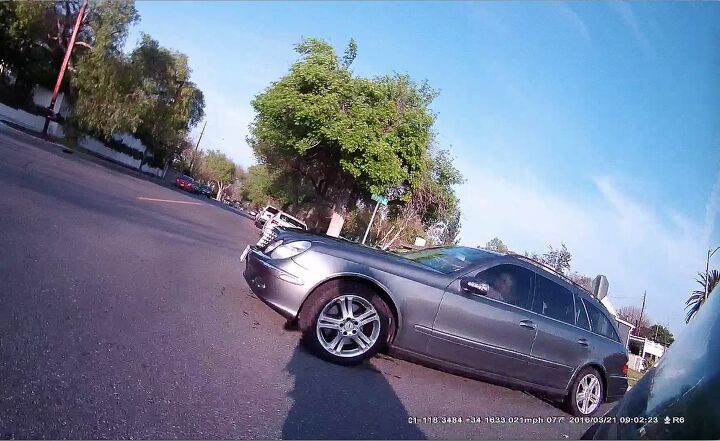

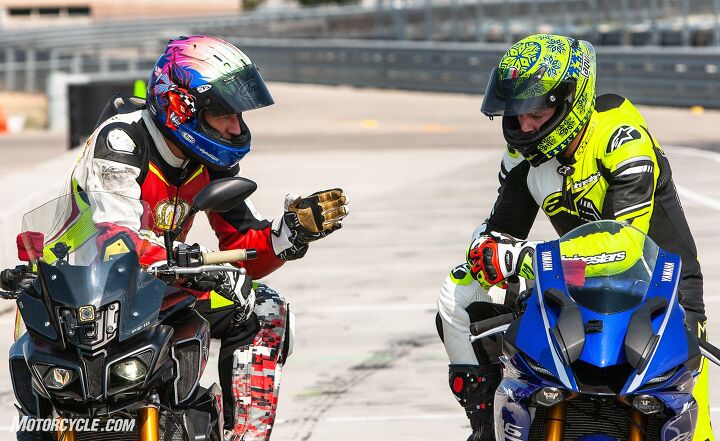


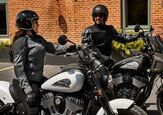




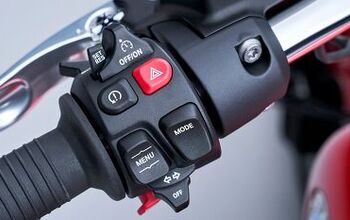
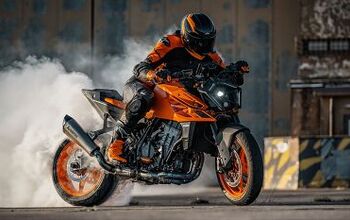
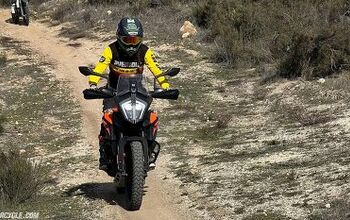

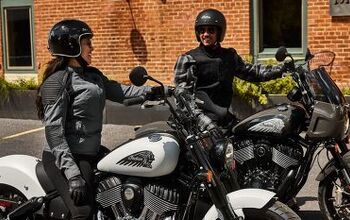
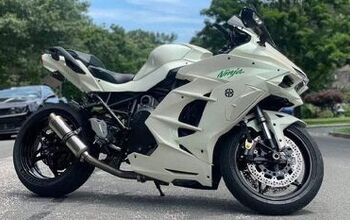
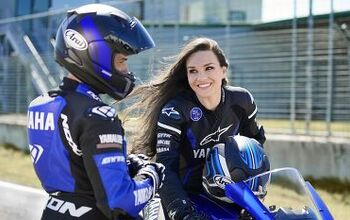

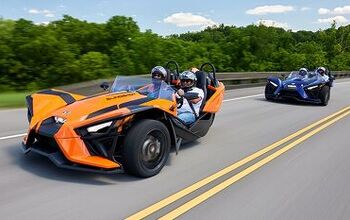


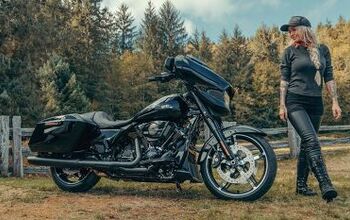





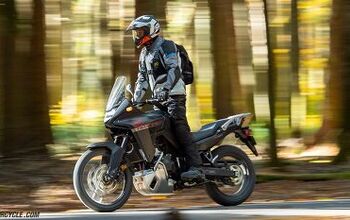
Comments
Join the conversation
https://uploads.disquscdn.c... Is it just me, or do both of these Yamaha's look really unhappy about their lot in life?
Luck always runs out, at the wrong time.